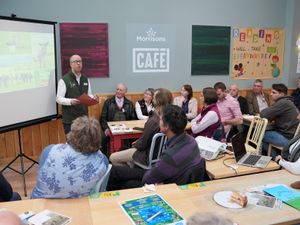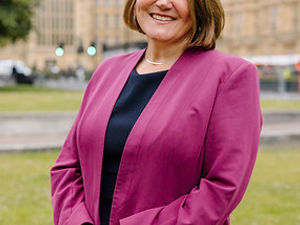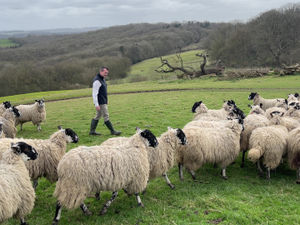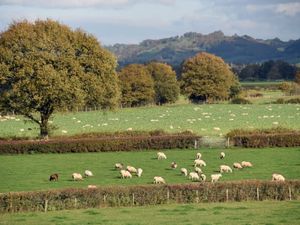Morrisons and Harper Adams connect for Sustainable Farm Network
An innovative farm network which will drive a step change in sustainability for farmers across Morrisons supply chain has been launched.

The Morrisons Sustainable Farm Network is at the heart of a programme being unveiled as part of the retailer's ongoing work to support its supplying farms on their journey to sustainable, net zero farming.
Being delivered alongside Harper Adams University’s School of Sustainable Food and Farming, the programme will work with farmers to develop the practices they need to make the changes and meet the sustainability challenges required to achieve Net Zero in a holistic way.
An initial cohort of over 70 farmers from across Morrisons supply chain will join the Sustainable Farm Network in its first year, supported by the School of Sustainable Food and Farming and Harper Adams and Map of Ag.
The network will provide expert advice and skills to ensure farmers are fully supported and have access to the latest insight to help them on their journey to a more sustainable future.
Morrisons is British farming’s biggest direct supermarket customer and works directly with over 2,700 farmers and growers all year round.
Director of the School of Sustainable Food and Farming Simon Thelwell, said: “Morrisons were a founding partner of the School, and it’s great to be unveiling this innovative and industry-leading programme with them today.
“At the heart of this programme will be the experience of farmers up and down the UK working day-in, day-out to bring Morrisons customers the fantastic produce they expect.
“We’re looking forward to being part of a great team equipping farmers with the knowledge they need to understand their carbon footprint and ways to decarbonise – and linking them with the experts and equipment they’ll need throughout that journey.
“We’ll also identify ways in which they can change their systems – making them both commercially viable and environmentally friendly, boosting wildlife and improving biodiversity.”
As each farmer joins the programme, they will be asked about their knowledge of six key themes which will be at the heart of the Network’s focus and which each farmer will develop.
These will be about the key factors which drive any farmer – their soil, water, and animal health and welfare. Questions will also focus on both the markets and motivations for each participant – as well as on the crucial environmental factors of greenhouse gas emissions and biodiversity.
As the programme develops, it will have three strategic and interlinked hubs which centre on the research, innovation and technical support needed to help the ideas it germinates to become useful to its participants and the wider industry.
Working alongside the wider Sustainable Farm Network, the Morrisons Network will become an industry exemplar through drawing on this on-farm experience, commercial practice and academic research.
Harper Adams Deputy Vice-Chancellor, Professor Michael Lee, said: “The Sustainable Farm Network, being led by the School of Sustainable Food and Farming, draws on the 36 land-based academic institutions which are part of Landex – linking existing networks into a wider framework, where farmers working towards sustainable practices and Net Zero can share their successes and collaborate with one another.
“At Harper Adams, we’ll be linking the Morrisons network to our students and research at both undergraduate and postgraduate level – allowing the farmers of the future to learn from those feeding Britain today.”





